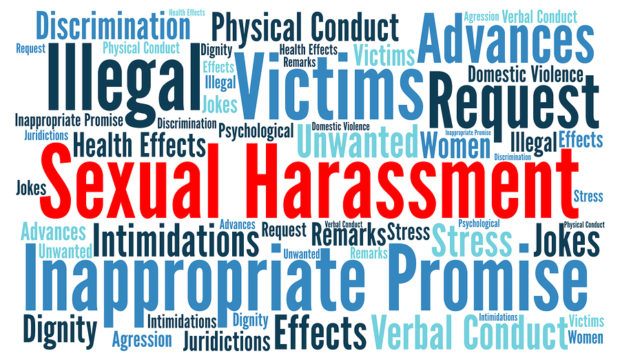While Harvey Weinstein’s insurers have reportedly agreed to pay $47 million to settle civil suits against the movie producer, most policyholders should prepare for an epic legal battle just to get their insurers to defend them against accusations of sexual misconduct.
Insurance litigator Joan M. Cotkin, with the Pillsbury Winthrop Shaw Pittman law firm in Los Angeles, said in a blog post Thursday that insurers are “stonewalling insureds” who ask for a defense against sexual harassment or assault allegations. At the same time, carriers are selling sexual abuse insurance coverage through new forms as endorsements or as optional coverage in other liability policies, she said.
“Yet even those cautious organizations that have purchased such coverage will not be guaranteed the insurance company will defend,” she said. “Often, a coverage lawsuit is the only way to secure coverage.”
Cotkin makes no mention of Weinstein in her essay, but he and his former employer, Disney Corp., faced exactly that situation in both civil and criminal court. More than 30 actresses and employees have filed lawsuits against Weinstein and the Manhattan district attorney has charged him with rape, predatory sexual assault and a variety of employment law violations. He is scheduled to stand trial on the criminal charges beginning Jan. 6.
The New York Times reported Wednesday that Weinstein and his bankrupt Miramax studio have reached a tentative $25 million settlement agreement with “dozens of misconduct victims.” That payout would be part of an overall $47 million settlement that would close out Miramax’s obligations in the bankruptcy filing, anonymous sources told the Times.
Weinstein’s insurers started suing him even before the New York City police arrested him on May 25, 2018. The previous March, Federal Insurance Co., Chubb Indemnity Insurance Co. Vigilant Insurance Co., Pacific Indemnity Insurance Co., Great Northern Insurance Co. filed a suit seeking a declaration that the various personal insurance policies issued to Weinstein did not cover the alleged misconduct.
Chubb said in the filing that the carriers had issued multiple coverages, including homeowners, property, fine arts, auto and personal liability, from 1994 to 2018. In all 80 insurance policies had been issued to Weinstein and his family members. Chubb said all of the policies excluded liability for claims for damages as a member of a board of a corporation. Some of the policies also specifically excluded sexual molestation, misconduct, abuse or harassment.
Chubb argued that Weinstein’s “egregious, intentional acts” do not constitute an accident or an offense that would warrant coverage. Each policy also excluded damages caused by intentional acts that could have been foreseen by a reasonable person.
Insurers that covered Disney filed their own lawsuits. Disney is involved because it acquired Miramax in 1993.
Steadfast Insurance Co. filed a suit in July 2018 asking for a declaration that an employment practices liability policy issued to Walt Disney Co. does not cover Weinstein’s actions. Steadfast paid defense costs with a reservation of rights, but argued it should be able to recoup those expenses because Weinstein’s intentional actions were excluded from coverage.
Axis Surplus Insurance Co. filed a similar lawsuit on Aug. 17, 2018. The company had issued a directors and officers policy to the Walt Disney Co. with a $25 million policy limit but claimed that Weinstein’s actions were not covered because his conduct was not performed in his capacity as a director, officer or employee of Miramax.
The New York Times article said Weinstein had reached a “global settlement,” but did not report on which insurers specifically are part of the deal or how they will share in the costs.
Weinstein is widely credited for sparking the #MeToo movement after the New York Times first reported on the accusations against him in 2017. In her blog post, attorney Cotkin said there has been a rash of lawsuits claiming sexual harassment in the workplace. A rash of policyholder lawsuits seeking coverage followed.
She said most insurers will seek a declaration the they owe no coverage if it looks like the case will be expensive to defend.
“Even the most cautious and careful insured, when faced with a high-exposure claim in a lawsuit, will likely have to fight with its insurance companies to secure the insurance benefits it has purchased,” Cotkin said. “Of course, providing notice to the insurance company of any lawsuit or claim made against the insured (early and often!) is essential.”
*This story ran previously in our sister publication Claims Journal.





















 From Skill to System: The Next Chapter in Insurance Claims Negotiation
From Skill to System: The Next Chapter in Insurance Claims Negotiation  Beyond Automation: The Emerging Role for Contextual AI in Insurance
Beyond Automation: The Emerging Role for Contextual AI in Insurance  AI Got Beat by Traditional Models in Forecasting NYC’s Blizzard
AI Got Beat by Traditional Models in Forecasting NYC’s Blizzard  Is Risk the Main Ingredient in Ultra-Processed Food?
Is Risk the Main Ingredient in Ultra-Processed Food? 








